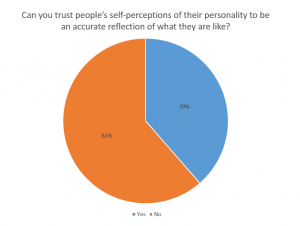The questions 5 to 11 regards to the evaluation of information related to participant’s self-knowledge, and their expectations about others’ perceptions and opinions about them. We were interested in investigating if participants find online social networks an easy mechanism for sharing their emotions, how accurate is their self-knowledge and if they are interested in knowing how they are perceived by others.
Question 5 found that 79% of participants sometimes share emotions on social networks with friends and family. It means that the majority of participants are able to express themselves publicly with their connections.

Question 6 revealed that there is no significant difference between their opinions about sharing of feelings on social media, whether it is an easy activity or not. The results found that 30 respondents (30.53%) think it is easy to share their emotions, and 27 (27.47%) of them think it is not easy. Those who answered that it is not easy to share they comment such as “sometimes you expect some feedback but there’s none”, “it’s a lot of exposure”, “I’m a private person”. We can provide a complete privacy policy that would help people share their emotions easily and safely on Aura platform. This is one of the ethics considerations discussed in the post http://generic.wordpress.soton.ac.uk/aura/2018/04/18/aura-ethic-consideration-dealing-with-privacy-issue/
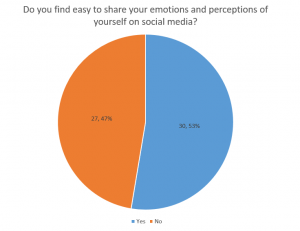
Question 7 and 8 tried to find out if participants are aware of their personality and behaviour and how accurate it is, if they think they are their own best experts. There were very similar responses between those who said they have self-knowledge and those who do not. This is an opportunity for Aura to offer a service that help people who do not know themselves very well.
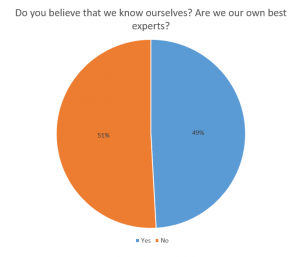
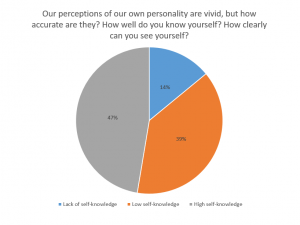
Question 9 and 10 were interested in understanding whether participants would want to discover if their self-knowledge is similar to what their friends, family and other people think about them. It revealed that the majority (82%) want to know if their perceptions of themselves are the same or similar to how friends and family see them, while 79% want to know how other people see them. It shows that people want to know more about themselves comparing their perceptions with family, friends and others. Aura provides a platform that will make it possible.
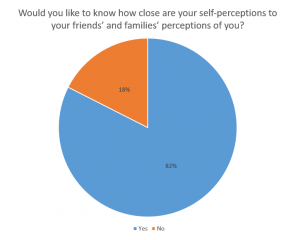
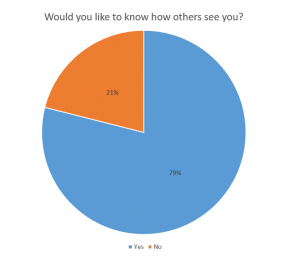
Question 11 intended to undertand if participants would trust what people say about their personality. The majority do not trust in others’ self-perceptions of their personality. Aura will provide a platform that users can interact with quizzes, play games and have fun at the same time that they can start to discuss and comment about their personalities. It will be a way to begin a conversation about self-knowledge, behaviour and mood in order to help people to discover more about themselves.
